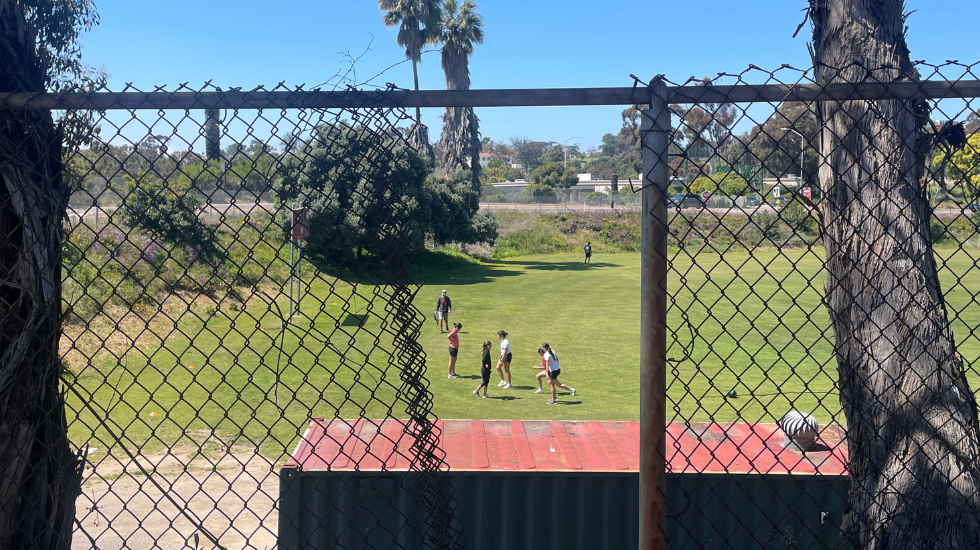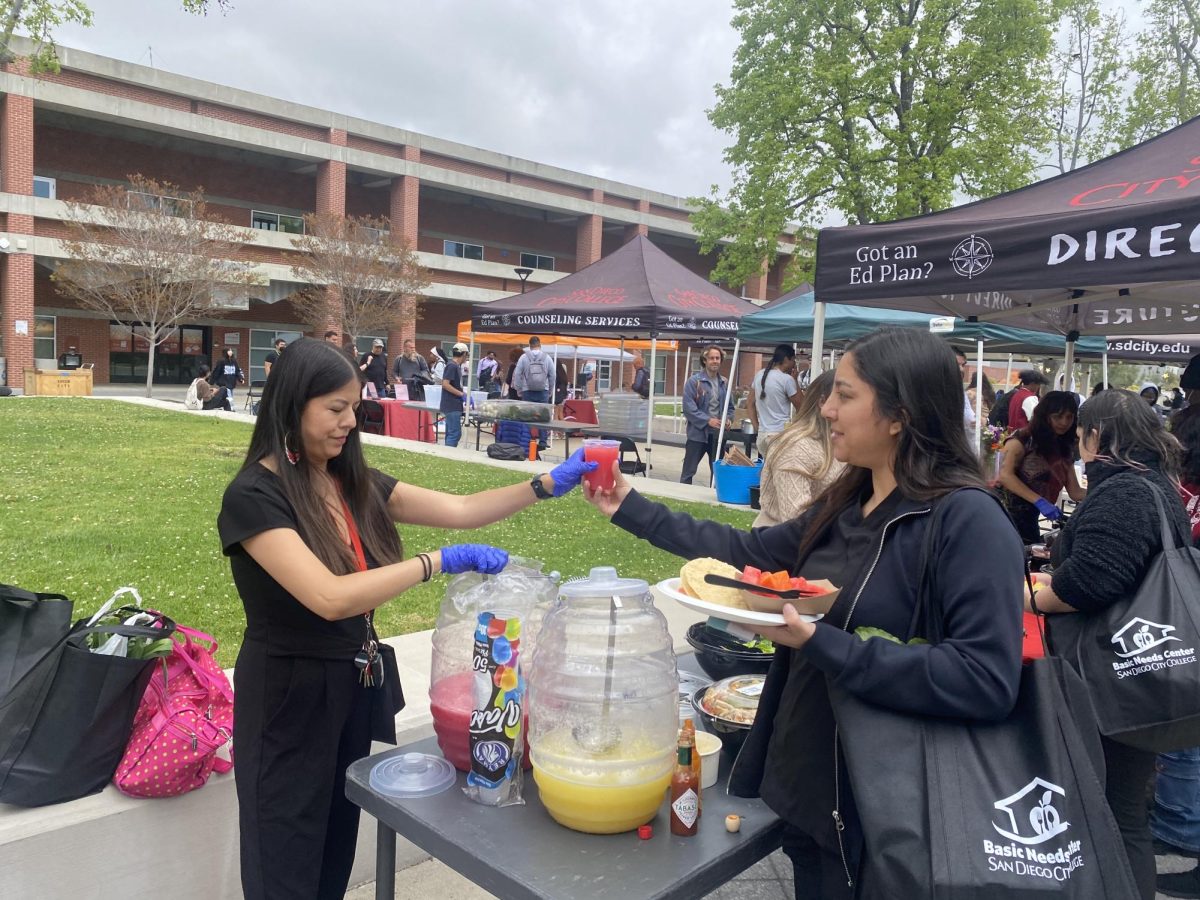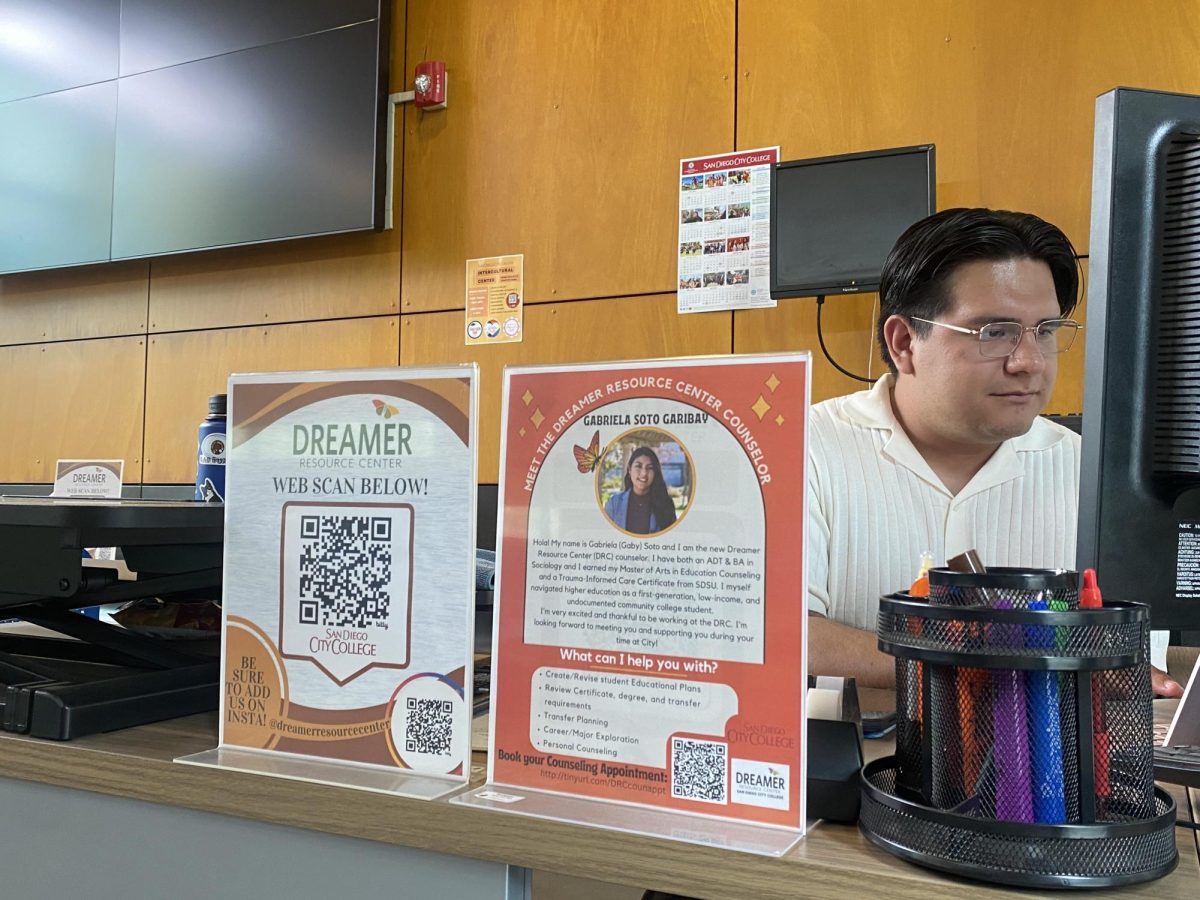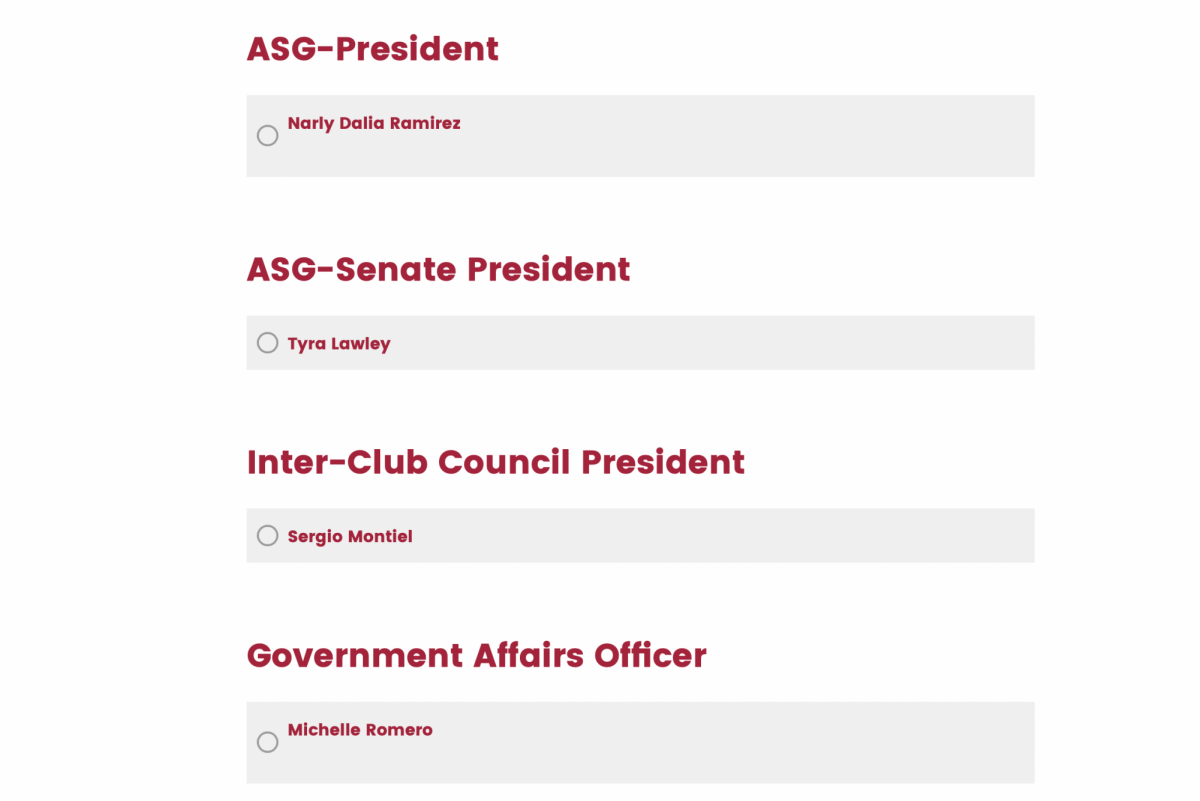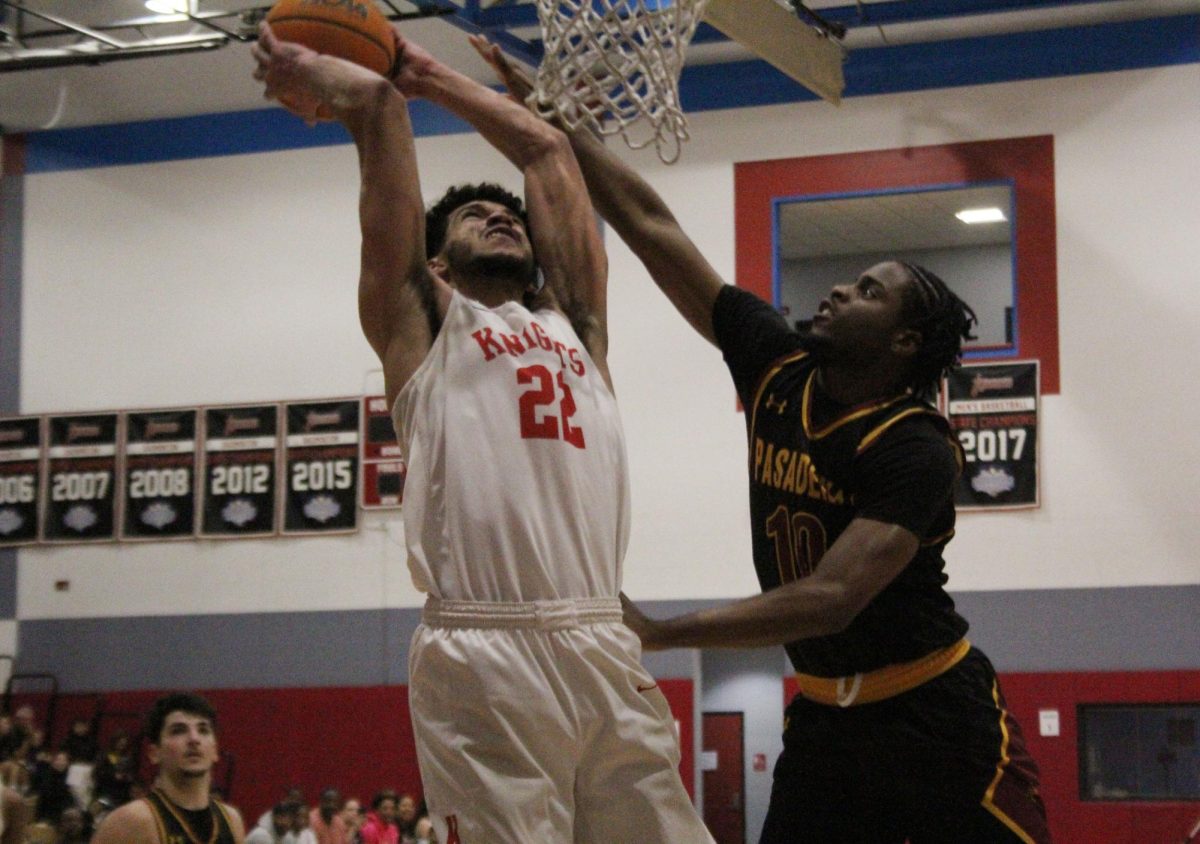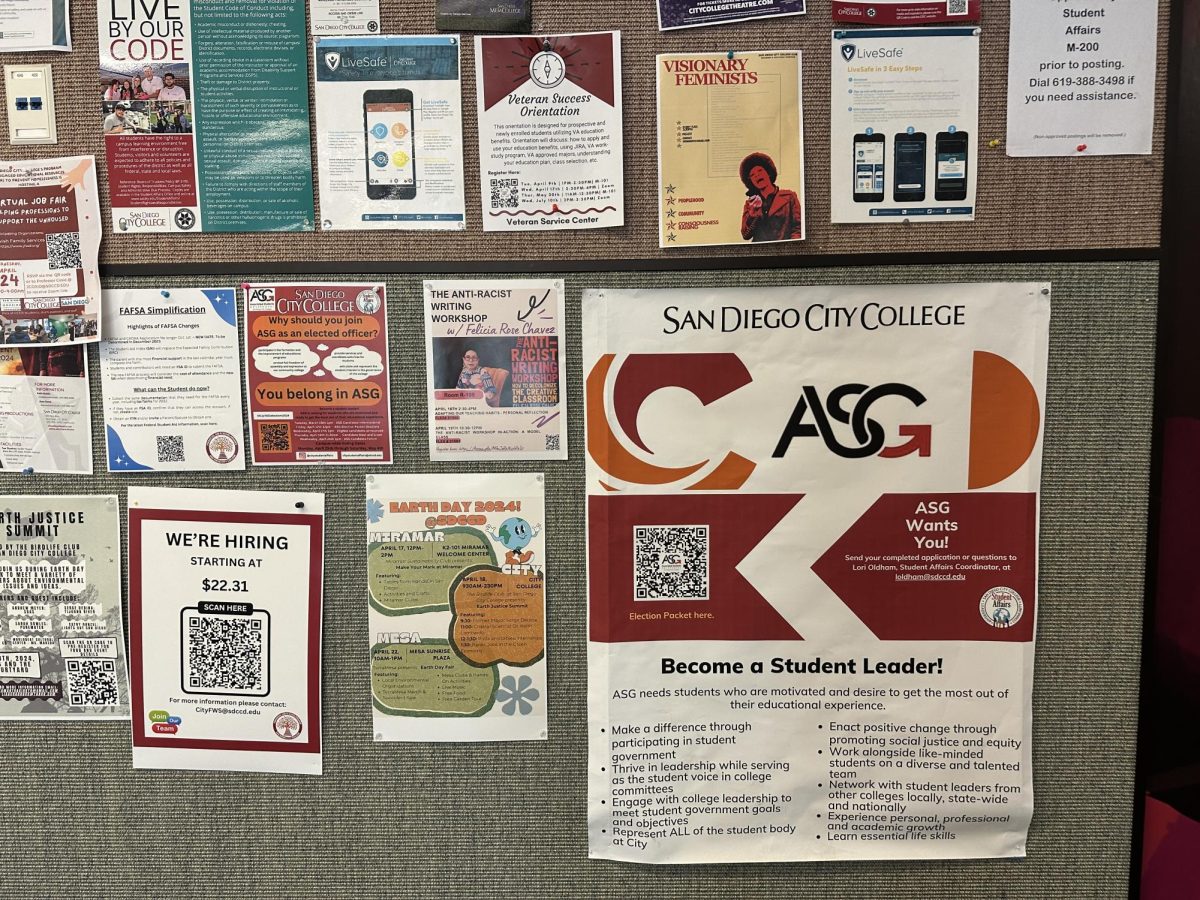A student selects a voice from the list on her computer screen and prepares to demonstrate.
“I can choose male or female, high or low tone,” she says. “It can read the text on the screen and answer basic questions.”
She clicks on an icon and a round microphone appears. She speaks into it. A disembodied man’s voice answers in a professional tone.
“Tell me a joke,” she commands.
“Knock, knock,” replies the voice.
This speech recognition program is part of San Diego City College’s High Tech Center, the campus computer lab assembled to assist students with disabilities and special needs.
Behind its push-button activated door are eye-opening examples of technology at its most useful, offering an array of learning opportunities for students. It was created as part of the college’s Disability Support Programs and Services, the department responsible for implementing the mandates of the American’s with Disabilities Act.
The center’s two main rooms contain more than a dozen computer stations equipped with accessibility features and other accompanying hardware. A few additions to the standard computer set-up are obvious, such as the screen magnifier, colored keyboard and enlarged trackball mouse.
Other less familiar equipment includes a closed circuit camera that enlarges any printed matter onto a monitor in real time and a high speed scanner that transfers an unbound book onto a data disc, which can then be read to a visually impaired student by a computer using optical character recognition.
Jacobs has become an expert with these assistive tools as both a student and instructor. She graduated from City College in 1997 with a degree in computer information systems, and later became an instruction assistant at the High Tech Center.
According to Jacobs, learning disabilities made mainstream academic structure difficult for her, but with the comprehensive help of the DSPS, she was able to achieve success.
“Concentration was difficult. I would start things and not finish them. I needed to have several projects going at once,” Jacobs said. Now she is using her experience to help disabled students in this, “most complex lab on campus.”
One of the methods of customizing material for disabled students is kinesthetic learning, the concept of creating an experience more vivid than simple reading and lecture.
“The more senses used, the higher the percentage of learning.” said Jacobs.
Jacobs explained that two ore more applications may be used to engage an alternative student. “We have students with multiple disabilities and have to accommodate everyone. They have different ways of processing information and we find ways to help them.”
Student Marylou Valencia has utilized the High Tech Center to continue career. She is a grant writer who has lost much of the use of her right arm and leg. Her work station is adapted for her with extended table space and a footstool.
“I used to type 90 words per minute, but now it’s more like 30,” Valencia said. She now uses speech to text software that transposes her spoken words into documents.
“I have taught it to recognize hundreds of words in my vocabulary, including Spanish words.”
But, as is common in public institutions today, lack of funding is threatening to stall further progress. Barbara Mason is the learning disabilities specialist and former program coordinator of the DSPS. She revealed that there is a freeze on hiring additional staff or purchasing equipment for the department.
“Our funding is down 32 percent for next year. We hope that half of that will be made up for with stimulus dollars,” Mason said. “No one wants cuts, but boom years can’t be counted on. We have to adjust to make it work.”
Mason also commented on the dedication and competence of DSPS and High Tech Center.
“I love it here at City College. Most of the instructors are career people; less transitory than other places,” adds Mason. “The ratings of staff and curriculum are consistently high.”

